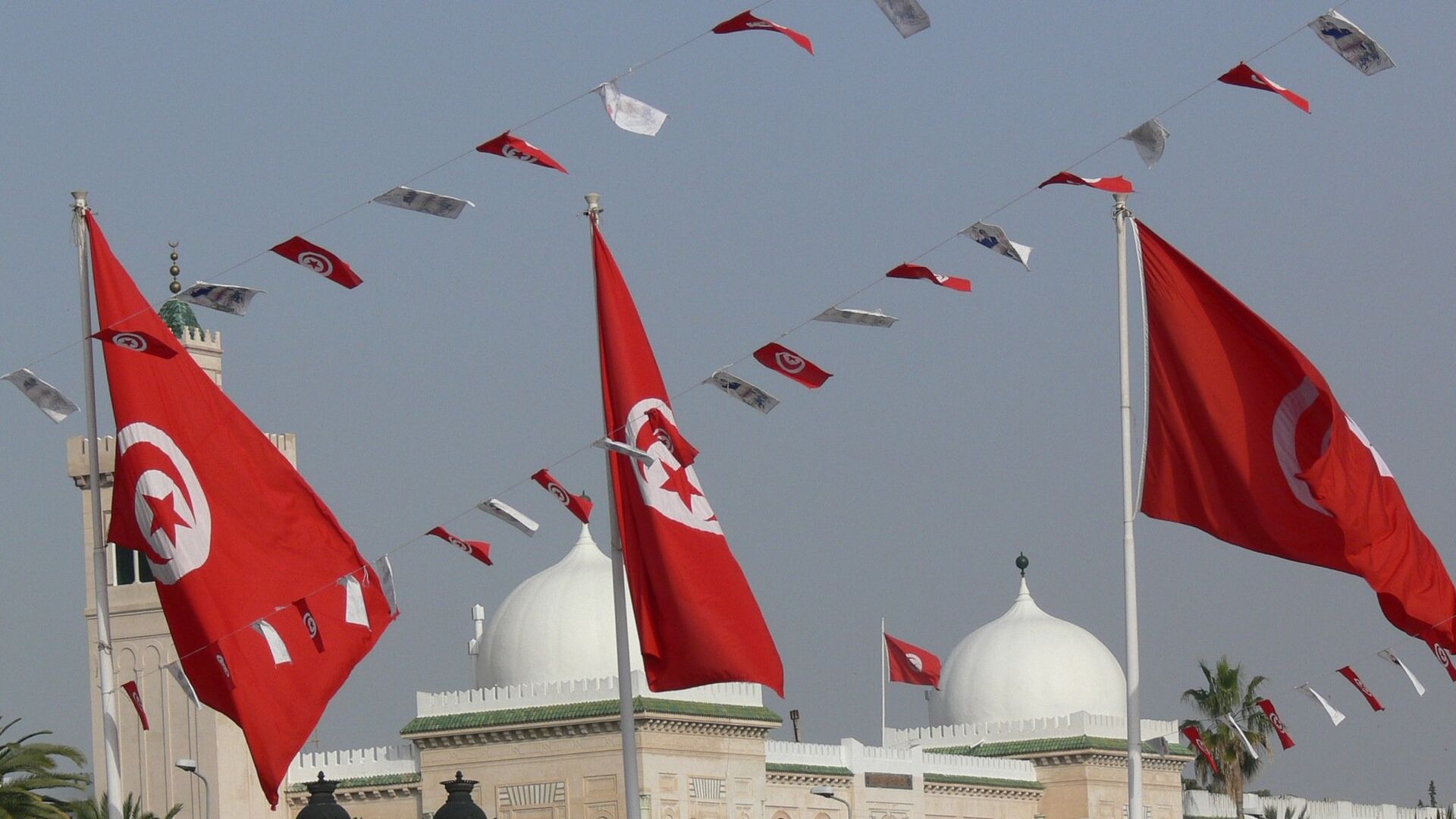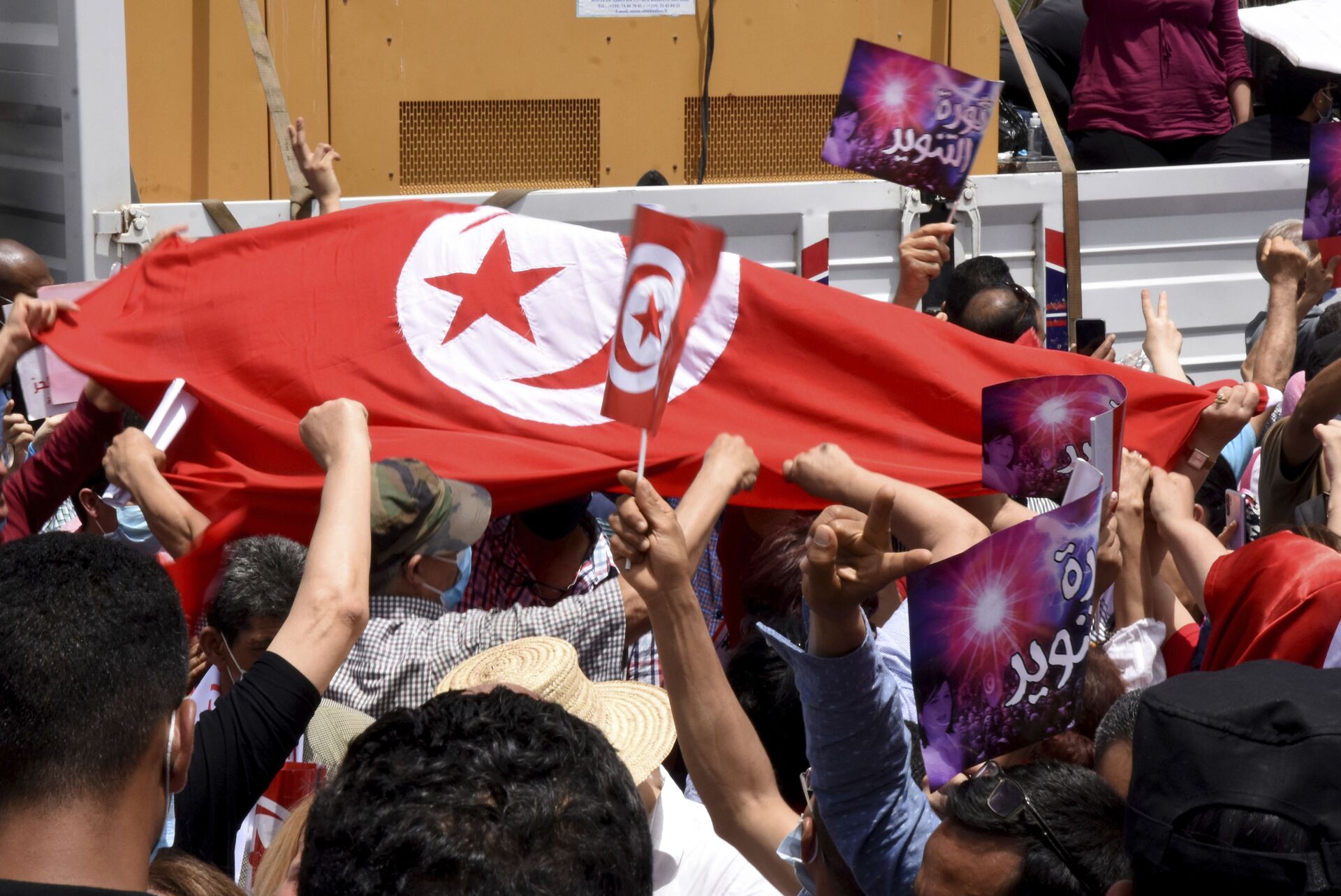https://sputnikglobe.com/20220625/tunisia-wont-mend-fences-with-israel-due-to-internal-opposition--years-of-conflicts-says-journo-1096652215.html
Tunisia Won’t Mend Fences With Israel Due to Internal Opposition & Years of Conflicts, Says Journo
Tunisia Won’t Mend Fences With Israel Due to Internal Opposition & Years of Conflicts, Says Journo
Sputnik International
Relations between the two countries were established in the 1990s, shortly after the creation of the Palestinian Authority. But less than a decade later they... 25.06.2022, Sputnik International
2022-06-25T09:51+0000
2022-06-25T09:51+0000
2023-01-15T17:26+0000
africa
middle east
tunisia
north africa
israel
https://cdn1.img.sputnikglobe.com/img/104680/75/1046807500_0:0:2048:1153_1920x0_80_0_0_5d20f7c67a6be4e9175f7ddb4ea972b1.jpg
Two years after the United Arab Emirates, Bahrain and Morocco inked the historic Abraham Accords normalizing ties with Israel, local media has been speculating on what nation could be next.One of Israel's leading newspapers, Israel Hayom, reported in June that Jerusalem officials were in “advanced talks” with Tunisia on the revival of bilateral ties. The two states established official relations in 1994 following the formation of the Palestinian Authority which was considered a breakthrough in the peace process. However, the ties were severed in the early 2000s shortly after the eruption of the Second Intifada, the violent Palestinian uprising against Israel.Unlikely TiesHowever, Israeli-Tunisia relations are "highly unlikely" to be formalized at this moment, said Khaoula Bin Khias, a Tunisian journalist who has been covering the developments in the region since the 2011 Arab Spring.This is not the first time that media has touted a potential Israel-Tunisia deal. In 2020, shortly after the Jewish State inked the Abraham Accords, reports began circulating that Tunisia might soon follow suit.Objections Within and OutAt the time, conservative objections torpedoed the restitution of diplomatic relations, with the Ennahda Party and its affiliates, known for embracing the Muslim Brotherhood’s ideology and backing the Palestinian cause, leading the charge. Now, these same forces will prevent the shaping of a similar deal, the journalist explained.However, the question not only revolves around public opinion. Neighboring Algeria, which is known for its vehement rejection of Israel, has been eyeing recent normalization deals with great concern. Last year, Algeria cut ties with Morocco following the latter's decision to re-establish relations with Israel.According to the journalist, a further agreement between Jerusalem and a North African country could deal a devastating blow to Algeria.Tunisia depends on Algeria for seventy percent of its gas. That said, Israel has discovered significant gas reservoirs since 2000, and has been inking lucrative deals with neighbors which could potentially fill the void. Tel Aviv could also help Tunisia with agricultural and technology projects, but Bin Khias opined that these prospects are too "unrealistic" at this moment.
africa
tunisia
north africa
israel
Sputnik International
feedback@sputniknews.com
+74956456601
MIA „Rosiya Segodnya“
2022
News
en_EN
Sputnik International
feedback@sputniknews.com
+74956456601
MIA „Rosiya Segodnya“
Sputnik International
feedback@sputniknews.com
+74956456601
MIA „Rosiya Segodnya“
middle east, tunisia, north africa, israel
middle east, tunisia, north africa, israel
Tunisia Won’t Mend Fences With Israel Due to Internal Opposition & Years of Conflicts, Says Journo
09:51 GMT 25.06.2022 (Updated: 17:26 GMT 15.01.2023) Relations between the two countries were established in the 1990s, shortly after the creation of the Palestinian Authority. But less than a decade later they came to an end as part of the Second Intifada.
Two years after the United Arab Emirates, Bahrain and Morocco inked the historic Abraham Accords normalizing ties with Israel, local media has been speculating on what nation could be next.
One of Israel's leading newspapers, Israel Hayom, reported in June that Jerusalem officials were
in “advanced talks” with Tunisia on the revival of bilateral ties. The two states established official relations in 1994 following the formation of the Palestinian Authority which was considered a breakthrough in the peace process. However, the ties were severed in the early 2000s shortly after the eruption of the Second Intifada, the violent Palestinian uprising against Israel.
However, Israeli-Tunisia relations are "highly unlikely" to be formalized at this moment, said Khaoula Bin Khias, a Tunisian journalist who has been covering the developments in the region since the 2011 Arab Spring.
"The situation in Tunisia is not stable now," he said, referring to mass protests against Tunisian President Kais Saied that erupted following his decision to sack 57 judges who have been accused of corruption and protecting terrorists.
"Israel is seeding these reports of possible ties with Tunisia to rock the already shaky boat even more,” he continued.
This is not the first time that media has touted a potential Israel-Tunisia deal. In 2020, shortly after the Jewish State inked
the Abraham Accords, reports began circulating that Tunisia might soon follow suit.
Objections Within and Out
At the time, conservative objections torpedoed the restitution of diplomatic relations, with the Ennahda Party and its affiliates, known for embracing the Muslim Brotherhood’s ideology and backing the Palestinian cause, leading the charge. Now, these same forces will prevent the shaping of a similar deal, the journalist explained.
"Israel and Tunisia have a lot of bad blood. We were brought up on the teachings of them occupying Palestinian lands. So how can we accept them? Any Tunisian government that would consider doing so would be suicidal. It will go against the will of the people," he stressed.
However, the question not only revolves around public opinion. Neighboring Algeria, which is known for its vehement rejection of Israel, has been eyeing recent normalization deals with great concern. Last year, Algeria cut ties with Morocco following the latter's decision to re-establish relations with Israel.
According to the journalist, a further agreement between Jerusalem and a North African country could deal a devastating blow to Algeria.
"Algeria is already feeling surrounded, so if Tunisia joins in [in recognizing Israel], it will feel isolated, and this might lead to big problems for Tunisia".
Tunisia depends on Algeria for seventy percent of its gas. That said, Israel has discovered significant gas reservoirs since 2000, and has been inking
lucrative deals with neighbors which could potentially fill the void. Tel Aviv could also help Tunisia with agricultural and technology projects, but Bin Khias opined that these prospects are too "unrealistic" at this moment.





